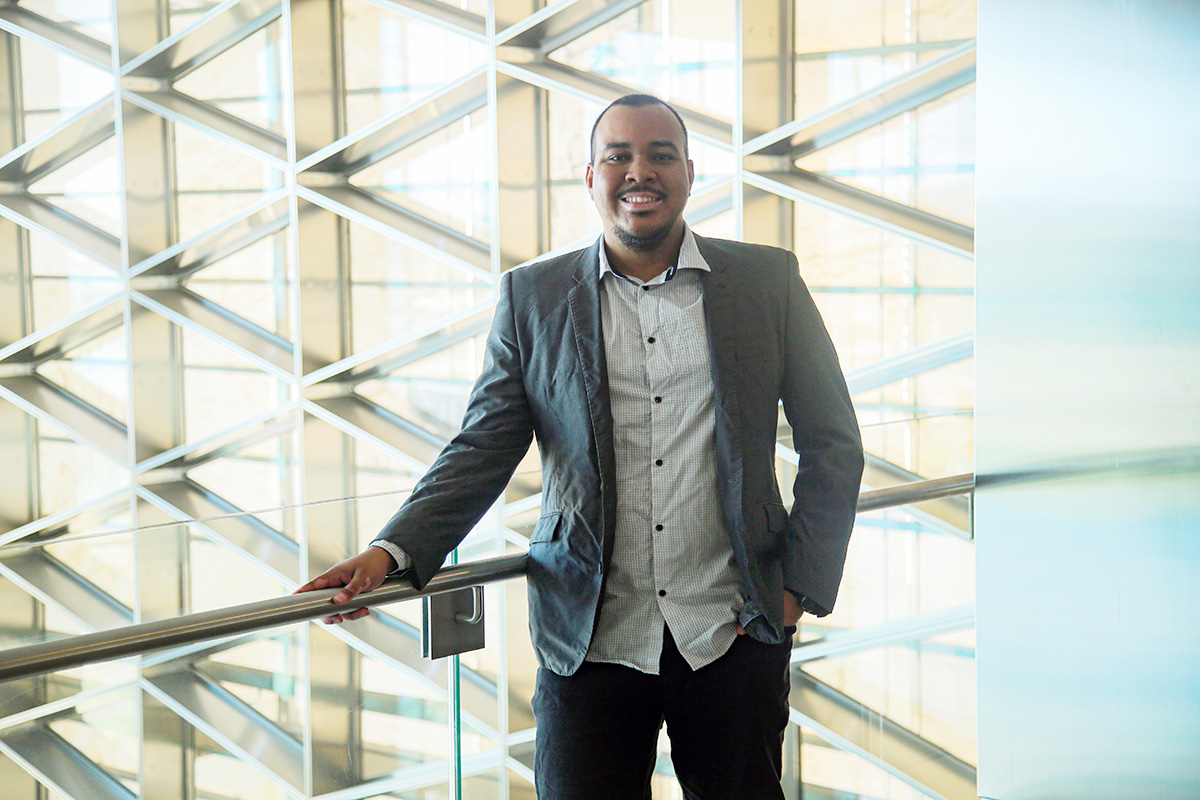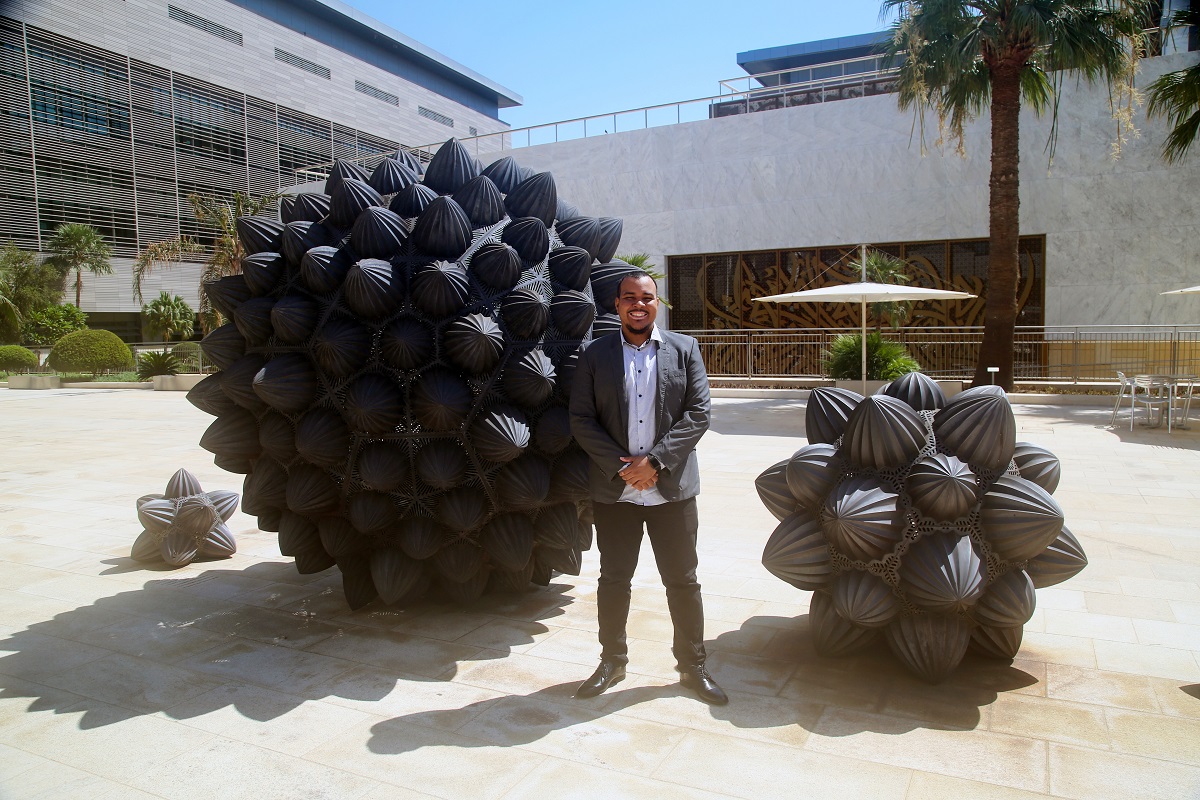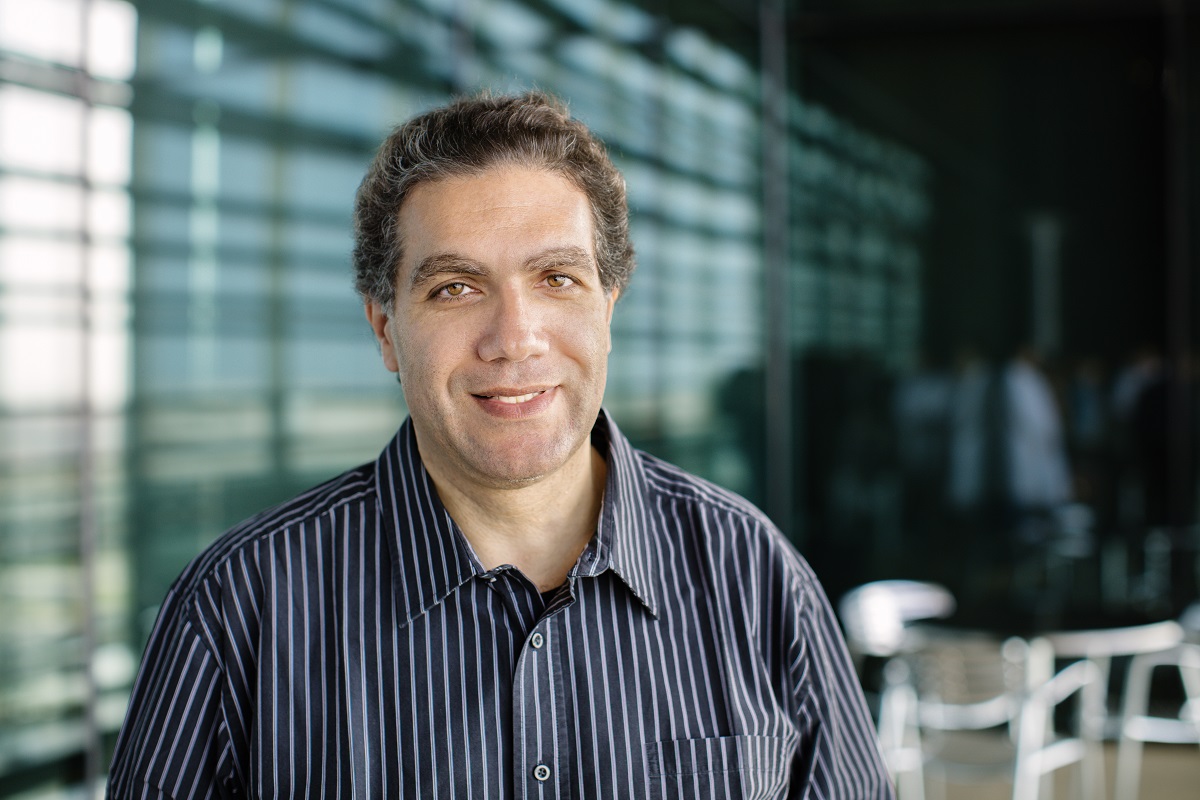KAUST student wins global sensors and measurement systems competition

KAUST master's degree student José Ilton de Oliveira Filho won first place at the recent IEEE International Sensors and Measurement Systems Student Contest in Auckland, New Zealand. His winning idea consisted of a smart bracelet and gesture-capturer for people with Parkinson’s disease. Photo by Meres J. Weche.
By David Murphy, KAUST News
KAUST master's degree student José Ilton de Oliveira Filho recently won first place at the second edition of the IEEE International Sensors and Measurement Systems Student Contest (IEEE IS&M-SC). IEEE IS&M-SC is a global competition directed at teams of advanced undergraduates, master's degree and Ph.D. students and seeks to stimulate creative ideas for sensor and measuring systems applications.
Oliveira Filho presented his winning idea at the IEEE Instrumentation and Measurement Society's flagship conference, the IEEE International Instrumentation and Measurement Technology Conference (I2MTC), held in Auckland, New Zealand, from May 20 to 23. His winning project demonstrated the development of a smart bracelet and gesture-capturer for people with Parkinson's disease (PD).
The bracelet helps people with reduced functional mobility to execute basic activities and creates a consolidated database for the disease. It also helps improve the quality of life for those with PD by assisting them to recoup independence for everyday activities.

Parkinson's disease occurs when neurons in a patient's brain deteriorate or die—leading to a progressive nervous system disorder affecting body movements. Image courtesy of Shutterstock.
"The innovative technology of the bracelet will assist people with PD to open and close doors, control the basic commands of smart TVs and enable smoother application navigation," he continued. "Moreover, the bracelet will constantly save the data of the [disease's] involuntary tremors and shaking for further classification and disease follow-up. [I believe] that the assessment of the disease can be automatized and improved using a neural network."

After completing his master's degree, KAUST student José de Oliveira Filho (pictured here on the University's campus) plans to begin his Ph.D. at KAUST. He later hopes to 'build devices that solve real-life problems, such as helping people with special needs,' he said. Photo by Meres J. Weche.
Research goals
Oliveira Filho is currently completing his master's degree under the supervision of Professor Khaled Salama in the KAUST Sensors Lab. Before joining KAUST in 2018, he completed his bachelor's degree in engineering at the Universidade Federal do Piauí (UFPI), Brazil. As part of his bachelor's degree at UFPI, Oliveira Filho took part in a one-year internship exchange program at the Budapest University of Technology and Economics, where he worked as a research assistant.

Master's degree student José de Oliveira Filho is currently supervised by KAUST Professor Khaled Salama (pictured here) and is part of Salama's Sensors Lab. File photo.
"KAUST is a wonderful place that allows us to think 'out of the box' and develop our research ideas freely," he noted. "Its facilities and [faculty and staff] help to make the construction and implementation of any design easy, [and] its diverse environment makes us have different views and get in touch with many ideas from all over the world."

